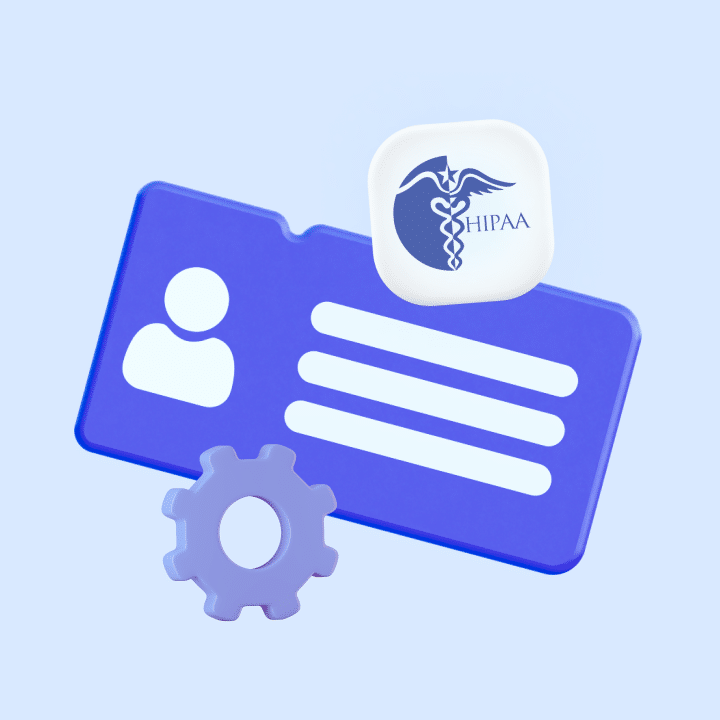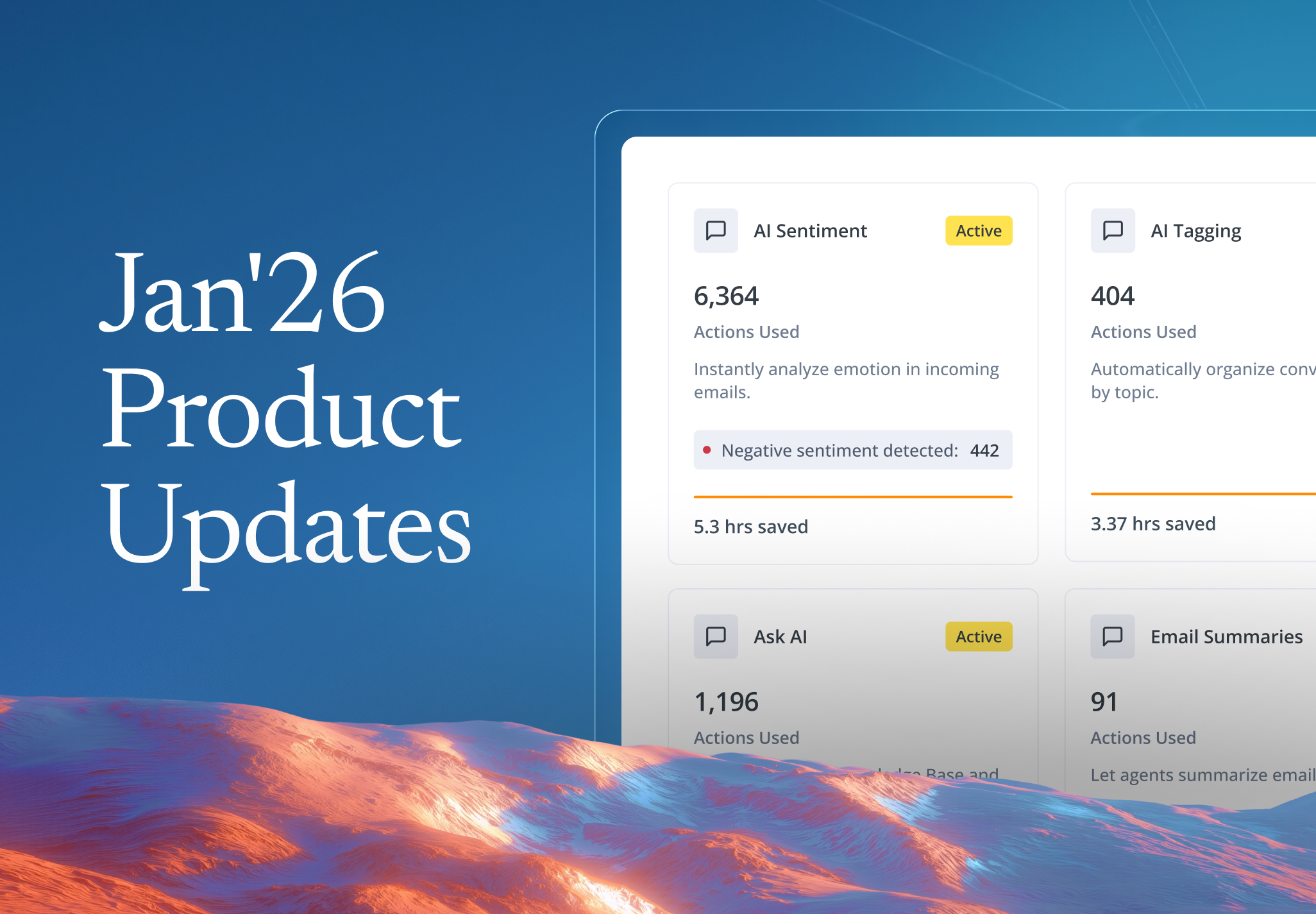We all want a safe, secure, and less-overwhelming way to manage our emails.
The good news is that there are many effective email software that can help with this. And two of the most popular ones include Gmail and Fastmail.
If you’re looking to decide between these two, you’re at the right place.
Gmail is an email service by provided by Google. With Gmail, users can send and receive emails easily and quickly through Google’s servers. It is known for intuitive UI, ease of use and its integration with other Google services.
On the other hand, Fastmail is an email service provider headquartered in Austalia. It emphasizes on privacy and security and user control. It is suitable for users requiring reliable, efficient and ad-free email service.
So, whether you want a feature-rich email experience or big on privacy, we’ll help you figure out which one’s right for you. Let’s dive in.
Table of Contents
Gmail vs. Fastmail – A detailed comparison
Google launched Gmail in 2004.Due to its generous storage availability and user-friendly design, it’s a go-to email service for many. In fact, as per statistics, Gmail has over 1.8 million users worldwide as of 2024. Also, Gmail owns 28.78% of the Email Client market share worldwide.
And then we have Fastmail. It has been around since 1999 and focuses on privacy and simplicity. It offers a clean UI, advanced email organization features and strong security. So, this is a favorite for privacy-conscious users.
Now, let’s look at the differences between the two in detail:
| Criteria | Gmail | Fastmail |
|---|---|---|
| Ease of Use | User-friendly interface with automated email sorting capabilities. | Clean UI with easy navigation. |
| Privacy and Security | Ads based on email content, strong security measures, and two-factor authentication. | No ads, strong privacy policies, masked emails, alias features. |
| Storage and Pricing | 15GB free storage. Offers various pricing plans starting @ $6/month for 50GB storage. | No free storage. Offers only paid plans starting @ $3/month for 5GB storage. |
| Customization and Flexibility | Extensive customization options, third-party add-ons, and extensions. | More control over email management, custom domains, and flexible settings. |
| Integration With Other Services | Seamless integration with Google services (Drive, Calendar, Meet). | Integrates with third-party services but limited options. |
| Customer Support | Community support, no direct support for free users. | Dedicated customer support across all plans. |
1. Ease of Use
Gmail is known for its user-friendly interface, which makes email management super easy. The layout is clean and straightforward, across various operating systems. The desktop and mobile versions of Gmail are equally intuitive, with responsive designs that adapt well to different screen sizes.
The interface is designed to minimize clutter, making it easy to log in, check your mailbox, and log off quickly. Also, Gmail automatically sorts emails into categories like Primary, Social, and Promotions, making it easier to manage a busy inbox.
Here’s what a Gmail user has to say about its interface:
“Gmail has a pleasant, user-friendly layout. I adore how Gmail is connected with so many other platforms; for example, you can use Gmail account to log into apps and other websites. It keeps your mail organized and is simple to use. It is quite easy to use with its categories.”
– User review on Software Advice
In fact, many users have found Gmail to be faster than Fastmail.
Fastmail’s interface, on the other hand, is minimalist and focused on essential email functions. You get a clean, clutter-free email experience.
However, unlike Gmail, Fastmail does not automatically sort emails into categories like Primary, Social, and Promotions. But you can always create custom folders and filters to sort emails according to your needs.
Which One Is For You?
Use Gmail if:
– You want an intuitive and fast UI.
– You prefer automated sorting of emails into categories.
Use Fastmail if:
– You want a simple, clean and minimalist email interface.
– You don’t want a bunch of features to distract your email layout
– You like having more control over the way you want to organize your inbox.
Also read: The Complete Guide to Set Up Google Workspace for Your Organization
2. Privacy and Security
Gmail and Fastmail’s privacy and security features are quite different.
Gmail shows you ads on your personal account based on your email content, which might be a concern for some. Whereas, if you’re using any of Gmail’s paid plans, you won’t be shown ads.
That being said, Google claims that they do not scan or read your messages to show you ads, and that the process of selecting and showing ads is fully automated.
Additionally, Gmail provides security features like spam detection, two-factor authentication (2FA) and phishing protection to keep your information safe from any unauthorized activity. You can always control your security settings from your Google Account.
Fastmail edges Gmail on the security front.It does not show ads, irrespective of the plan you take.
One of its powerful features is Masked Email, which lets you create temporary or disposable email addresses to protect your main email. It’s perfect for signing up for newsletters or trials without exposing your real address.
With Fastmail, you can also use aliases. This feature lets you have multiple email addresses under one account. For example, you can have different addresses like info@yourbusiness.com and support@yourbusiness.com under one account.
Use case: you can manage various functions of your business without needing two separate accounts. You save on how much you spend on your email service by doing this.
Here’s what an FM user has to say about these features:

Which One Is For You?
Use Gmail if:
– You’re comfortable with being shown ads.
– You want a secure email service with two-factor authentication.
– You’re confident about Google’s regular security updates and phishing protection.
Use Fastmail if:
– You prefer an ad-free email experience.
– You prioritize strong privacy and security features like masked email and aliases.
3. Storage and Pricing
When comparing Gmail vs. Fastmail, storage and pricing are important factors to consider.
Gmail’s free version offers up to 15GB of storage, which is shared across Gmail, Google Drive, and Google Photos.
If you need more space, you can upgrade to Google Workspace for Business. This suite has various pricing tiers. It starts from as low as $6/month/user (billed annually) and offers up to 50 GB of storage. This makes Gmail a flexible option for both personal and professional use, depending on your storage needs.
Fastmail doesn’t offer a free plan; all its plans are chargeable. However, the pricing is reasonable, and you get various storage options based on the plan you choose. Fastmail’s plan starts at $3/user/month where you get 5GB of storage. It also offers other plans with more storage, suitable for businesses that are scaling up rapidly.
Few things to consider here:
- Gmail offers unlimited storage (priced at $18/user/month) while Fastmail’s offers a maximum of 100GB – as part of its highest pricing plan.
- Gmail’s basic paid plan offers 50GB of storage. This may feel like a waste of money since not everyone requires 50GB of storage for work – especially smaller teams. Fastmail brilliantly addresses this issue. At $3/user/month, you get 5GB of data which can be useful to many. You pay exactly for what you need.
Which One Is For You?
Go with Gmail if:
– You want a generous amount of free storage to begin with.
– You need flexible pricing plans that allow you to upgrade storage as needed.
Go with Fastmail if:
– You’re okay with paying for an email service from the start.
– You want to pay for just what you need – not more, not less.
Also read: Google Workspace for Business Pricing: Which Plan Should I Choose
4. Customization and Flexibility
Gmail provides extensive customization options. You can use filters, labels, and categories to organize your inbox just the way you like.
Gmail also supports a wide range of third-party add-ons and extensions. These tools such as Hiver, Trello, Salesforce, etc. can help you double up your Gmail inbox as a helpdesk, task manager, CRM, and more. You can easily find these extensions on the Chrome Store.
As for Fastmail, it makes customization easy by offering features like custom domains. This means you can use your own domain name for your email addresses, such as yourname@yourbusiness.com.
This gives your communications a more professional look. It’s especially useful for businesses, as it helps build brand identity and trust with clients.
Fastmail also allows you to create custom folders and use powerful filtering rules to categorize your emails. This gives you a lot of flexibility in the way you want to organize your inbox.
In fact, users have found Fastmail’s spam filtering to be quite effective.
“I have been with Fastmail’s spam filtering. It can also be tuned. I end up with virtually no spam in my inbox. If you listen to MatcGeekGab they had a couple of discussions during July about spam filtering in general and Fastmail’s capabilities were discussed a bit.”
User review of Fasmail’s filtering features
Which One Is For You?
Go with Gmail if:
– You want extensive customization options and features.
– You rely on third-party add-ons and extensions for your workflows.
Go with Fastmail if:
– You want strong filtering capabilities.
– You need custom domains for a professional appearance.
[cta_block]
5. Integration with Other Services
When evaluating Gmail vs. Fastmail, their ability to integrate with other services is a key difference.
Gmail offers seamless integration with other Google services like Google Drive, Calendar, and Gmeet. This makes it easy to attach files from Google Drive, schedule events on Google Calendar, and join video calls with Google Meet – all within your Gmail inbox. This deep integration streamlines your workflow, especially if you already use other Google apps.
Fastmail integrates with third-party services, but it has fewer native options compared to Gmail. You can connect Fastmail to services like Google Calendar and Dropbox through standard protocols like CalDAV and CardDAV.
Fastmail does not come with built-in integrations. But you can still link it with the tools you need. However, the setup is a little complicated.
Which One Is For You?
Use Gmail if:
– You heavily rely on Google services like Drive, Calendar, and Meet.
– You want a unified ecosystem where all tools work together.
– You need easy access to file sharing, event scheduling, and video conferencing.
Use Fastmail if:
– You use various third-party services from different providers (ex: Dropbox for storage, Zoom for video calls, etc).
– You don’t mind a bit of extra setup to connect your email to other tools.
6. Customer Support
Speaking of Gmail’s customer service, they offer community support through forums and help articles. Free users have limited direct support. They have to rely on the Google user community for answers.
Paid Google Workspace users get access to more direct support options, including chat and email support software. So, the Gmail setup works well if you’re comfortable finding answers through community resources and don’t need immediate assistance.
On the other hand, Fastmail offers dedicated customer support to all its users. The support team is responsive and helpful, providing timely assistance via email. Fastmail’s support is known for being personal and attentive and is a good choice if you’re looking for immediate support.
Here’s what a Fastmail user has to say about its support on Reddit:

Keep in mind that Fastmail’s starting plan is priced at $3/user/month and Gmail’s starting plan is priced at $6/user/month. Which means Fastmail comes cheaper and on top of that, offers dedicated customer support.
Which One Is For You?
Use Gmail if:
– You’re comfortable using community forums and help articles for support.
– You don’t need immediate, personalized assistance for free accounts.
Use Fastmail if:
– You value having dedicated customer support availability.
– You prefer responsive, personal assistance over community-based help.
The Bottom Line
Choosing between Gmail and Fastmail depends on your needs and preferences.
Gmail is great if you’re already using other Google services. It offers powerful features, lots of customization, and seamless integration with other Google apps. Its pricing plans are flexible and on top of that, it offers a generous free storage plan.
Fastmail is ideal if you value privacy and a clean, ad-free email experience. It offers strong security features, custom domains, and dedicated customer support. Although it doesn’t have a free plan, its pricing is reasonable, and you pay only for what you need.
Think about what matters most to you. Do you need integration with Google services and a feature-rich environment? Go with Gmail. Do you prefer privacy, simplicity, and dedicated support? Fastmail is your best bet.
Choose the one that fits your workflow and helps you stay productive.
Frequently Asked Questions (FAQs)
1. What is the main difference between Gmail and Fastmail?
Both Gmail and Fastmail are email services. Gmail offers a feature-rich experience with seamless integration into Google services like Drive, Calendar, and Gmeet. Fastmail focuses on privacy, providing a clean and ad-free interface with strong security features.
2. Which email service is better for privacy?
Fastmail is better for privacy. It doesn’t show ads and has strong privacy policies, including end-to-end encryption. Gmail, on the other hand, shows ads based on your email content.
3. Can I use my custom domain with these email services?
Yes, both Gmail and Fastmail support custom domains. However, setting up custom domains in Fastmail is more straightforward.
4. Is it easy to switch from Gmail to Fastmail or vice versa?
Yes, both services provide tools to help you import your emails, contacts, and other data. This makes the switch relatively straightforward. However, some setup and adjustment will be required.
5. Which service should I choose if I want a simple email experience?
If you want a simple and clean email interface without ads, Fastmail is the better choice. If you prefer having more features and customization options, Gmail is more suitable.
.
 Skip to content
Skip to content











